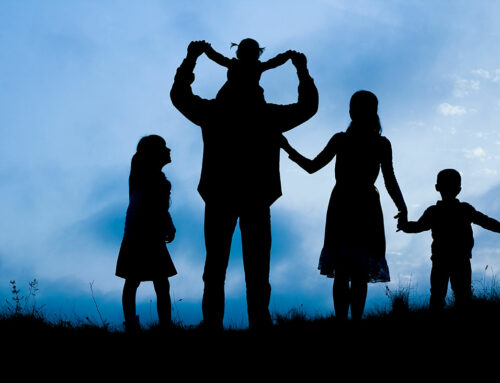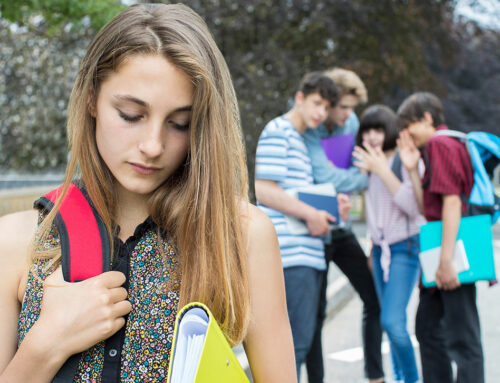So many thoughts cross our minds when we think about starting the journey of homeschooling our children. We wonder whether we are doing the right thing or doing it for the right reasons, and then just as we start to feel more settled, a friend or family member may ask questions or make comments that make us doubt ourselves all over again.
We often hear a remark about how our children would learn social skills if we “isolate” them through homeschooling. And, no doubt, it is something that we have considered time and time again. Interestingly, research shows that homeschooled children have better results than their public school peers when tested on different aspects of their social skills.
How can we ensure that we are teaching our children the much-needed social skills to support them in everyday life while we are also responsible for teaching academics? Here are three tips to help you:
Daily Interactions:
Homeschooling involves a lot of interaction between the parent(s) and the child. These interactions may sometimes be more formal, but it also includes constant informal, “incidental” interactions. Without even planning to do so, we spend time sharing ideas, listening to one another, working together, learning how to agree to disagree, and many more.
These skills are all part of what we want children to learn at school, but it is often challenging if one teacher has to facilitate interactions between an entire classroom of students. Daily interactions happen automatically, and therefore it is not something that you would need to do additional planning for.
However, it would be a good idea to remind yourself occasionally to slow down and savor the opportunities to learn more about the social skills involved in daily interactions. It is easy to rush through the “simple, everyday” things, especially when we have many tasks, but the social aspects are equally important and are skills that our children will need for the rest of their lives.
Peer Interaction:
Daily homeschooling involves mainly adult-child interaction, especially if you homeschool only one child. This will bring about many opportunities for your child to learn how to interact and socialize with adults. While that certainly has benefits, children must also interact with friends their age.
Children handle disagreements, accomplishments, and social challenges differently from adults. Adults often tend to be more lenient and understanding when dealing with a child, while children can sometimes be more egocentric in how they think.
Your child’s skills to communicate and solve problems with you might not work when dealing with children their age. It would therefore be helpful for your child to interact with peers, but if it is something that they do not have much exposure to, it can cause our kids to feel anxious about it.
To make the experience more enjoyable (and less daunting) for your child, try to find group activities that involve your child’s interests. Sports teams, craft activities, and writing- or book clubs could be considered options.
The children in the club will already have something in common as they will share a common interest. Common interests are beautiful ways to explore, get to know people, and build friendships.
Positive Self-Esteem:
Children (and adults) with positive self-esteem are more likely to be confident in social scenarios. This could help them to have more successful and meaningful interactions with others. You can support your child in this regard by doing activities together where they can explore their interests and their strengths.
You could find ways they could be helpful and supportive in the community or within the family. It will provide countless opportunities to help, learn and engage while building meaningful connections.
Considering the skills and activities mentioned above, it is safe to say that homeschooling will affect your child’s social skills, but it has the potential to do so in a highly positive manner.
More Statistics and Facts about Social Skills:
Socialization Fast Facts (source):
- Dr. Susan McDowell addresses this issue in her book, But What About Socialization? Answering the Perpetual Home Schooling Question: A Review of the Literature. She says, “It’s a non-issue today. All the research shows children are doing well.”
- Richard G. Medlin of Stetson University notes that “Compared to children attending conventional schools, however, research suggests that they [homeschooled students] have higher quality friendships and better relationships with their parents and other adults.” (source and source)
- In addition, homeschoolers are even more skilled at conversing with people of different age groups and making new friends with their public-schooled counterparts, who are usually only with other kids that happened to be born within 12 months of their birthdays.”
(source)
Social Skills of Homeschooled Adults (source):
Homeschooled adults are more likely to…
- Volunteer or participate in community service. (source)
- Vote, relative to the general population. (source)
- Succeed in higher education at a more substantial rate than public schooled students. (source)
- Have much higher measurable communication and social skills and better quality social interactions. (source)
- Score higher than traditionally schooled adults on the personal security, academic competence, and family acceptance subscales of the Self-Esteem Index (source)
- Have lower rates of clinical anxiety. (source)
- In one study, “traditionally schooled students exuded eight times as many antisocial traits [as compared to] their homeschooled counterparts.” (source)
- Homeschooled students also tend to have higher-quality relationships. (source)
- Homeschoolers tend to have better relationships with a variety of age groups. (source)
Want to homeschool and give your kids superior social skills, but don’t know where to get started? Get our free ebook, Welcome to Homeschooling, and gain inspiration and confidence.
Nanette Botha
Nanette Botha is the Head of Parent Coaching and course creator for Tracto (www.tracto.app) that helps equip parents of children with emotional or behavioral challenges such as anxiety, depression, ADHD, or autism.
She is a teacher with 15 years of experience in education, specializing in the field of neurodiversity, and co-founded AIMS Global (www.aimsglobal.info), which specializes in teaching neurodivergent individuals diagnosed with autism (and related conditions) functional goals, that will increase communication, independence, and successful coping skills.
Nanette is also the mother of 3 young children.




